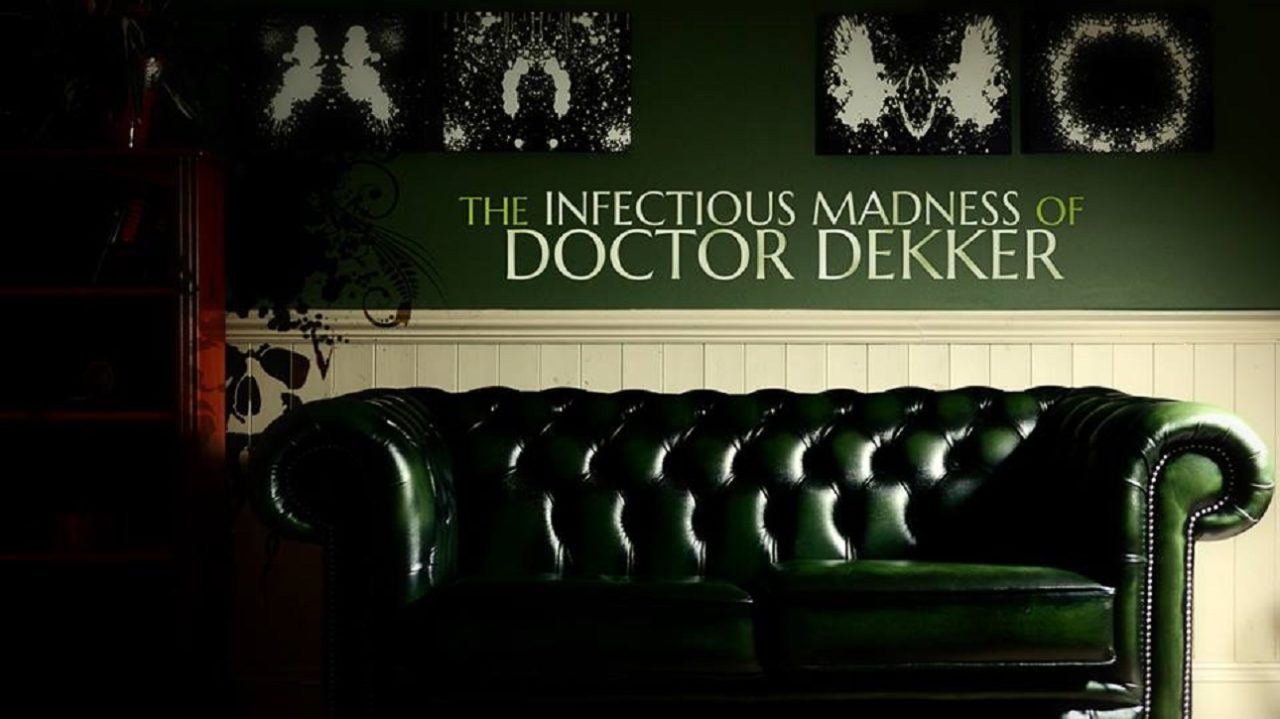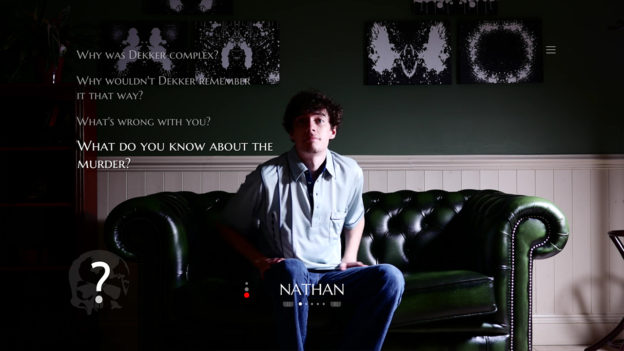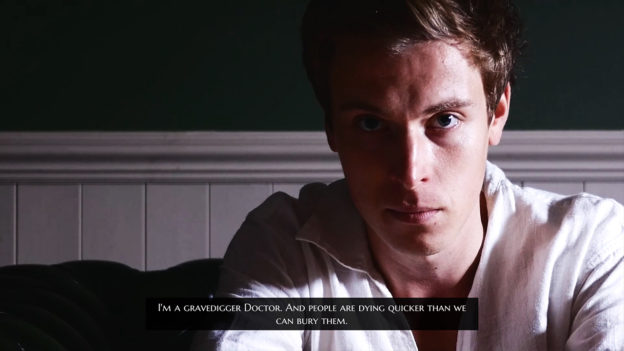After performing fairly well on Steam for more than a year, The Infectious Madness of Doctor Dekker has now been released on Nintendo Switch.
You play as a psychiatrist and investigator who takes over from Doctor Dekker. It is up to you not only to treat the patients the deceased Dekker left behind, but also to solve the mystery of his murder.
The Infectious Madness of Doctor Dekker has the honour of a Guinness World Record for most amount of full motion video in a game, with an enormous total of over 1600 unique video responses to questions that you ask. From the start, this game demands patience and a significant time commitment.
Five patients answer questions about their relationship with Doctor Dekker and their own mental health issues, with clues about what is really going on scattered in amongst their answers. You can choose which questions you’d like to ask from a list provided for you, or there is a free text section where you can type out your own prompts, keywords, and questions.
The vast pool of video responses you could get shows the effort that the creators have gone to in order to prevent an overly repetitive experience, which is a trap that many full motion video games do fall into. For instance, if the game doesn’t recognise a question that you type into the free text section, there are forty responses for each character effectively side-stepping the question. It’s clear that the creators have made an effort here to avoid a common pitfall of games in this genre.
They haven’t completely avoided every issue that full motion video games face. For instance, questions that are no longer relevant are still available as options. This means that you can choose to say “hello” at the very end of a conversation, and the character you are speaking to will respond as if it is the beginning.
This can be easily avoided by just not clicking on “hello” at unreasonable points in the conversation. But if you do hit it by accident, it can derail your suspension of disbelief.
The Lovecraftian elements of the game are woven in subtly. They build up gradually in a way that engenders a solid sense of mystery as the game progresses.
There are elements of the writing that sometimes miss the mark, though. For instance, a character refuses to tell you what her diagnosis was from Doctor Dekker. Even if you accept that she wouldn’t provide this information to ensure that her new psychiatrist is fully informed about her mental health, it doesn’t make sense that the new doctor wouldn’t have already been provided with that information via patient records.
The small but noticeable moments that don’t make logical sense can shake your trust in the storytelling when they crop up. But if you’re invested in the story and the mystery, then it’s easy enough to bypass them and carry on with your investigation.
The Infectious Madness of Doctor Dekker has some rough patches, but for a relatively inexpensive game ,there’s a lot of content to get through and plenty for eager sleuths to get their teeth into.
Review: The Infectious Madness of Doctor Dekker (Nintendo Switch)
Fair
Doctor Dekker offers a lot of content, built in a way that allows you to piece an intense mystery together on your own, but with some clunky bits that let the whole game down.









